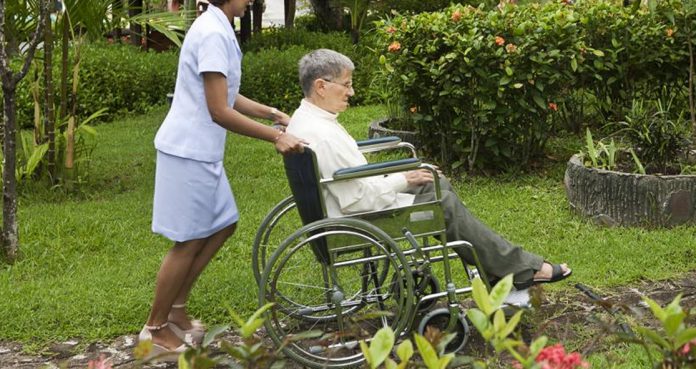Many families in the United Kingdom have been sending their elderly relatives to Thailand to receive dementia care.
Finding it difficult or impossible to afford, many UK people are living thousands of miles away from their families and spending time in private care homes in Chiang Mai – the largest city in northern Thailand.
Senior lecturer in human geography at Newcastle University Dr. Caleb Johnston said, “Thailand already has a long history of medical tourism and it’s now setting itself up as an international hub for dementia care.”
Some dementia care facilities are British-run, while some are Thai- and Swiss-run but with substantial investment from Britons. All the facilities have the backing and support of the Thai government.
Dr. Johnston said, “The government and private investors are very active in cultivating this as part of their economic development.”
In the UK, more than 850,000 people are living with dementia. Local residential dementia care costs up to £700 ($909) a week and private care around £1,000 (approximately $1,300).
In Thailand, around-the-clock residential care with fully qualified staff in highly equipped facilities costs around £750 (around $975) a week.
Dr. Johnston and his team spent nine weeks in Thailand. They interviewed families and staff in residential care homes.
“There aren’t yet any official numbers as to how many people are moving out to Thailand to receive care,” said Dr. Johnston.
He added, “Relative to the total number of people living with dementia, it is a low number. But with the number of people with dementia set to increase, and the cost of looking after them also getting higher, it is likely to be an option that more and more people consider.”
Director of Clinical Services at Dementia UK Paul Edwards said, “I can well understand people choosing this option, given the state of anxiety about care in the UK. It’s an emerging market that I can see becoming more popular because our failing and ailing system – which no politician is even trying to find a solution for – causes fear for those whose loved ones have to use it.” Nevertheless, families who take their loved ones overseas for medical care often talk about the physical, emotional and financial distress while taking care of them in the UK, which is why maybe they are outsourcing their care to the other parts of the world.























